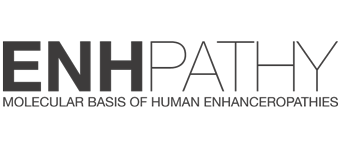I am originally from Barcelona, and my wish to be part of the scientific community started very long time ago, when I first had in school a subject called “expanded biology”. From this first thoughts I jumped to study Pharmacy at UCM, Madrid. During my degree, I took the opportunity to make an internship at the Institute of Physiology of the Czech academy of sciences (CAS), department of Neurochemistry, in Prague. This was my first time getting in touch with real research and animal work, and I knew that I wanted to experience much more of it after my degree. And so, I did. Right after the last final exam, I took a flight to start a new adventure. I spent two years in Germany, working at the Cardiovascular pharmacology lab at ISAS Dortmund (Leibniz Institute for Analytical sciences). There, I worked towards the understanding of the role of ERK1/2 dimmer interface across different malignancies.
After, I found the group of Hematooncology at the institute of molecular genetics (IMG) in Prague, led by Meritxell Alberich Jorda. My interest for basic research and the international and supportive work environment that this group provides, led me to apply for a PhD position, and to move to Prague again. Right now, I am very glad I took this opportunity and I am very excited to develop my project, which I briefly explain after this introduction. I consider myself lucky to have had the opportunity to take a glimpse at different fields of research in the last years. I believe that I have learned from these previous experiences, and that they will help me in my recently started PhD.
I am as well very excited to be part of Enhpathy, a vibrant and collaborative community that will broaden even more the possibilities of learning what research offers. I believe that Enhpathy has created the perfect environment to share our knowledge and to support one another. Looking forward to what’s next to come!

![]() This project has received funding from the European Union’s Horizon 2020 research and innovation programme under the Marie Sklodowska-Curie grant agreement No 860002. The information contained in this website reflects only the authors’ view. REA and EC are not responsible for any use that may be made of this information.
This project has received funding from the European Union’s Horizon 2020 research and innovation programme under the Marie Sklodowska-Curie grant agreement No 860002. The information contained in this website reflects only the authors’ view. REA and EC are not responsible for any use that may be made of this information.
 Meritxell Alberich-Jorda (Supervisor)
Meritxell Alberich-Jorda (Supervisor)
